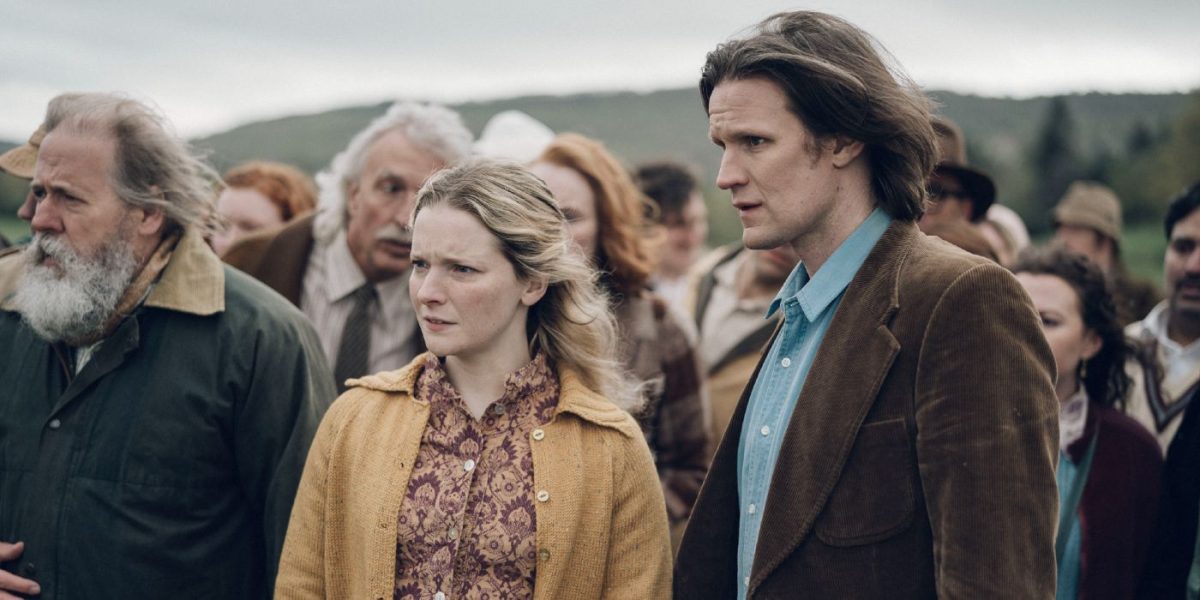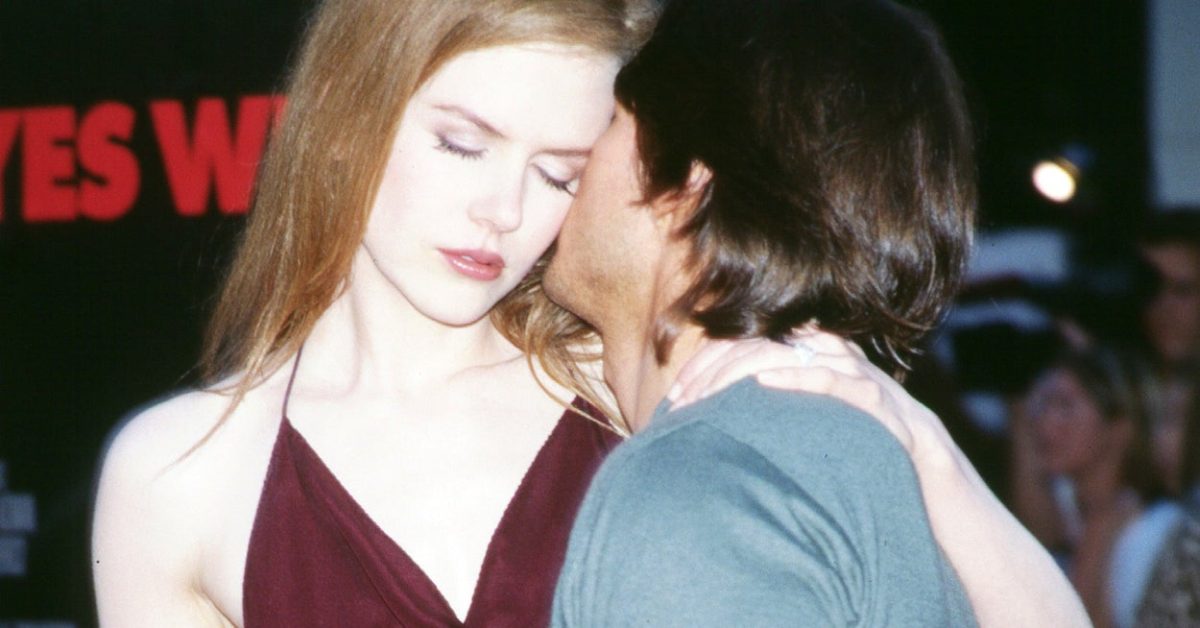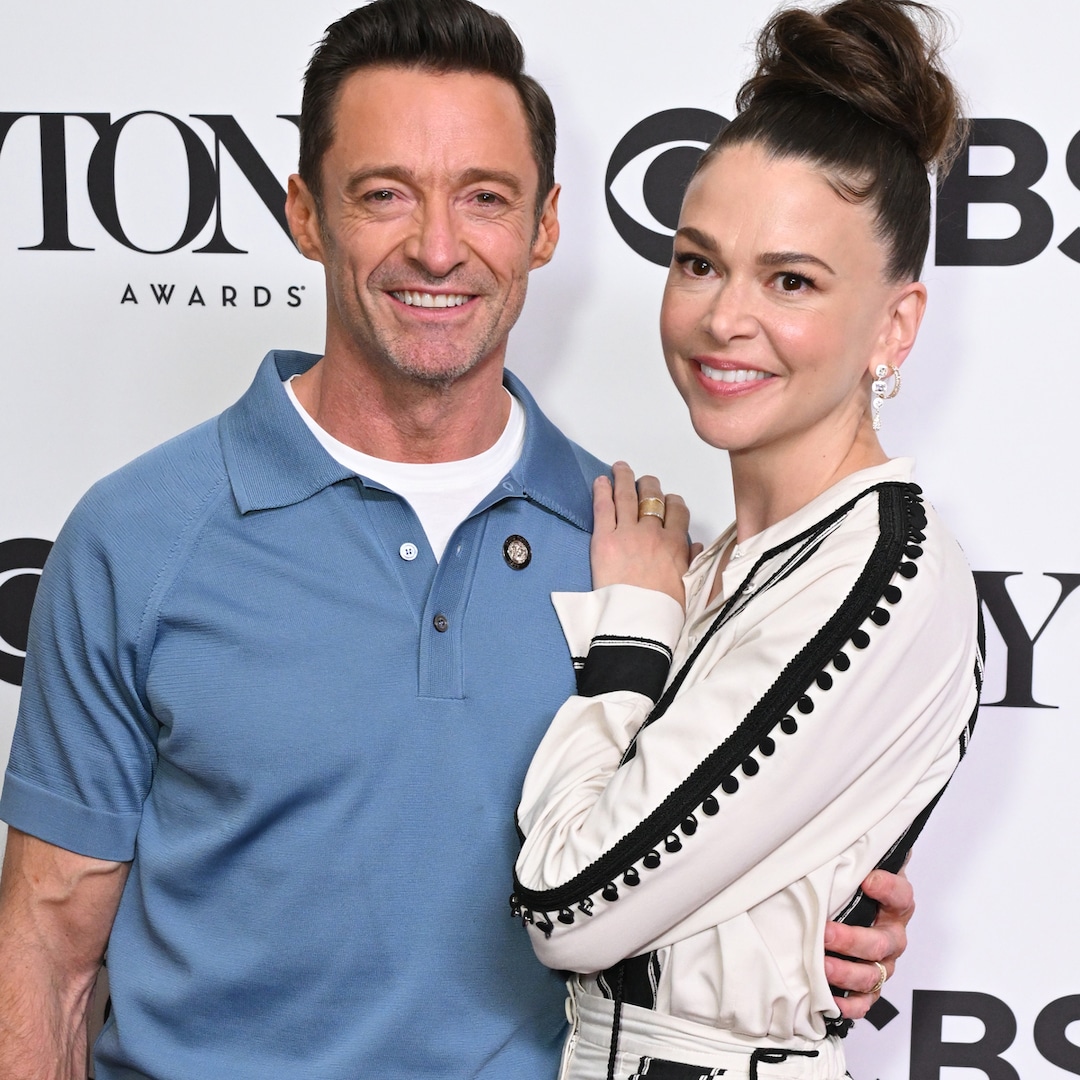
‘Starve Acre’ Review – Matt Smith and Morfydd Clark’s Supernatural Folk Horror Has an Identity Crisis
Jul 25, 2024
The Big Picture
Starve Acre
embraces Gothic horror with haunting visuals and an atmospheric setting.
The film stumbles storytelling-wise by leaning too heavily into supernatural elements.
Morfydd Clark and Matt Smith deliver strong performances, but the characters lack depth and emotional development.
When it comes to horror, you’re casting a pretty wide net, depending on the tone and the mood of the movie. Whether you’re dabbling in the realm of chainsaw-wielding killers or eerie ghosts, there’s a certain vibe that you’ll be picking up. For director Daniel Kokotajlo’s sophomore feature film Starve Acre, I think we can safely call it Gothic dread. Dabbling in the supernatural and folk horror, Starve Acre follows the couple Richard (Matt Smith) and Juliette (Morfydd Clark) as they struggle through the recent death of their son while facing off against the odious landscape of a rural home in Yorkshire. Based on the Andrew Michael Hurley novel of the same name, the film chronicles Richard and Juliette’s mourning period, with the heartbreak of losing a son pushing them apart while they are isolated in Richard’s rural family home. Kokotajlo weaves a haunting narrative, but the film stumbles at the midway mark, losing some of its initial momentum; it ultimately comes back together in a chilling, albeit rushed, ending.
Starve Acre (2024) When their son starts acting strangely, a couple unwittingly allow dark and sinister forces into their home, awakening a long-dormant ancient evil rooted deep in the countryside.Release Date July 26, 2024 Director Daniel Kokotajlo Runtime 98 Minutes Writers Daniel Kokotajlo , Andrew Michael Hurley Expand
‘Starve Acre’ Completely Embraces the Gothic Horror Aesthetic
Image via BFI
Any good Gothic story will incorporate the setting as a main character into the narrative, and Starve Acre is no different. Cinematographer Adam Scarth is an expert at capturing the misty, pastoral countryside of Yorkshire. Scarth worked with director Daniel Kokotajlo on his feature debut Apostasy, and the two clearly work well together. The soul of Starve Acre is the titular plot of land itself. Whether it’s Richard digging into the earth in search of bones to excavate or Juliette staring out into the moors, there’s an oppressive presence to this place. It exists in the same space alongside Juliette and Richard; they do not just exist within it. While Richard is very much “of the land,” having grown up on Starve Acre before leaving home and moving away as an adult, both he and Juliette feel like outsiders intruding on the land until they begin to embrace its strangeness.
In many ways, the atmospheric gloom of the film reflects Andrew Michael Hurley’s novel. Hurley’s prose never shies away from descriptive and precise language when it pertains to the physical landscape of Starve Acre. In Kokotajlo’s film, Starve Acre is not only the land that imprisons Richard and Juliette in their grief, but it’s one that’s soaked in blood and horrors, and Richard’s proximity to it unearths foul memories. From a mythical hanging tree to occult sacrifices, the ground is ancient, and it makes its presence known. The camera often lingers on the cold and desolate land, especially since Richard is an archaeologist who spends his time digging in the earth. After Owen’s death, he becomes almost obsessive about this, spending extensive time outside and even falling asleep in the dirt, waking up to his face caked with soil.
Meanwhile, Juliette haunts the family home, now completely silent after the death of her son, and she sinks deeper and deeper into her depression. While the arrival of her sister, Harrie (Erin Richards), brings with it a new spark of life, soon that too is suffocated by Starve Acre the longer Harrie lingers in the house. Starve Acre’s biggest struggle is narrative, but its visual palette is absolutely flawless. You couldn’t ask for a better setting for a film like this, and oftentimes, when the story itself struggles, the physical atmosphere and tone fill in the blanks comfortably.
‘Starve Acre’s Problems Lie in Its Story and Loyalty to the Source
The core problem with Starve Acre is one inherited from Hurley’s novel. After a strong first act, the film suffers from a bit of an identity crisis. As Richard and Juliette are driven apart by their grief, they are slowly succumbing to elements of the supernatural. Starve Acre itself acts as a liminal space, a place where the veil between worlds feels thin. What the film does wrong is take this in a literal direction. Dipping into the occult only works if the set-up is there and, unfortunately, Starve Acre doesn’t do enough to lead into that.
What it does do is toy with the concept of magical realism. For much of the film, I found myself questioning whether what the couple was experiencing was truly supernatural or if it was a figment of their grief-turned-madness, manifesting itself in the wake of their isolation. Richard and Juliette clearly had issues with their son before his death, including disagreements about how to parent him and also their personal feelings about their son’s behavior. And though we do glimpse some of this, we just don’t see enough of it. There is so much richness there, but it goes unexplored, favoring a more supernatural angle.
The story dabbles with the ghosts of the past, with Richard’s own father being a heavy specter that hangs over him. Rather than exploring his own relationship with Owen, which Richard consciously makes sure to foster positively after a harrowing experience in his childhood, the film gets lost in the mythology and folklore that is far less interesting. The most major spot the story diverges is when we watch as a skeleton of a hare undergoes a fascinating transformation, one that is both grotesque and fantastical. The scene itself is cool, but the film would have benefited from more ambiguity. Is the hare really transforming before our eyes or is this what comes of those who linger at Starve Acre? Is this only what Richard and Juliette see, while Harrie questions the sanity of her sister and brother-in-law as she watches them unravel?
Unable to decide whether it wants to lean more into the emotional development of the characters or the lore of the land, Starve Acre stagnates at its mid-point, feeling aimless as it tries to incorporate folk tales and urban myths into Richard and Juliette’s crumbling marriage. By the end, it barrels toward full supernatural horror, indulging in everything from blood sacrifice to surreal imagery, but it feels unearned without the proper groundwork. Its final scenes are memorable, but there’s too much style and not enough substance.
Morfydd Clark and Matt Smith Take Center Stage in ‘Starve Acre’
Though the story falters throughout the run of the film, the performances do not. It might feel like a bit of stunt casting to put both Matt Smith and Morfydd Clark — two leads in major fantasy franchises — into a film together, but Smith and Clark are fairly convincing as a couple. Where they flourish is the transformation from a loving family into estranged and embittered parents. It’s clear that Richard and Juliette are at their best when they have someone to nurture. Left alone, the cracks in the foundation begin to show.
Smith’s Richard gets the lion’s share of the character development even though he and Clark both share the screen. Though there’s not much to do other than stare out into the horrors of the moors, dig at the ground, and brood, Smith still manages to make most of his scenes feel weighty. Clark, meanwhile, is at her best when Juliette is at her lowest point. The combination of the makeup that makes her look sallow — almost skeletal — and Clark’s shell-shocked expressions make it feel like Juliette is actively dying in front of us, bit by bit, now that Owen is gone. Her character is sadly much less developed compared to Richard. Starve Acre is Richard’s childhood home, so he has a deeper connection to the land through his father’s old journals, his memories, and the locals in the area. Despite the presence of Harrie, Clark doesn’t get enough to work with. In this case, when the story moves toward the supernatural, her turn in the final third of the film feels somewhat separated from the character in the first part.
It’s a bit disappointing that these two never come to a head where they are allowed to express more extreme emotions since the tension built between Richard and Juliette never truly comes to a breaking point. Once again, this is a fault of the plot more than the acting. We know that Clark, who embodies a fierce and vocal Galadriel in Lord of the Rings: The Rings of Power is capable of matching the fiery Smith, who oozes danger and charisma in House of the Dragon. Starve Acre allows both actors to lean into more subtle performances, but it never allows them to dig deep into them. It’s a pity since they both have the potential for a more dynamic performance together and should be given the opportunity, given this switch in genre. The moments when Richard and Juliette cut to the heart of their issues — such as cruelly blaming each other for their faults as parents when Owen was alive — are when the sparks of potential show.
Unfortunately, Daniel Kokotajlo’s second feature has a lot of missed potential, but there is still much to love about Starve Acre. It is moody and creepy, though perhaps not brave enough to wander into true melodrama or bizarre fantasy. In the end, its performances and the way it incorporates Gothic elements, along with a strong visual aesthetic, make the film a worthwhile watch.
REVIEW Starve Acre (2024) ‘Starve Acre’ never uses the full potential of Matt Smith and Morfydd Clark, but still makes for an appropriately spooky and atmospheric horror.ProsDaniel Kokotajlo and cinematographer Adam Scarth’s visual palette for the film is appropriately spooky and Gothic.Matt Smith and Morfydd Clark play well off of each other as a married couple, with Smith’s performance making the most of what little he’s given. ConsThe story feels underdeveloped and the way it leans into supernatural elements is underwhelming.The characters, particularly Morfydd Clark’s Juliette, feel rather underbaked and rely on a strong performance to push it through the film.
Starve Acre opens in select theaters and on VOD in the U.S. on July 26. Click below for showtimes near you.
GET TICKETS
Publisher: Source link
Nicole Kidman’s Viral Getty Image Catalog
Nicole Kidman's Viral Getty Image Catalog Nicole Kidman has stepped back into the limelight to promote the new A24 erotic thriller Babygirl — and she’s looking as radiant as ever. The Academy Award-winning star has had an incredibly storied career,…
Jan 14, 2025
Hugh Jackman and Sutton Foster Have Steamy Makeout Session
The Music Man's final curtain call was in January 2023. But it wasn't the only thing to come to an end. In September of that year, Jackman and his wife of 27 years Deborra-Lee Furness announced their split."We have been blessed…
Jan 14, 2025
Mandy Moore Shares She’s Unsure If Her Home Survived
California Fires: Mandy Moore Shares She's Unsure If Her Home Survived On Tuesday, Mandy shared on her Instagram story that she, her children, and her pets left their home and were safe. "Evacuated and safe with kids, dog and cats.…
Jan 13, 2025
YouTubers Colin, Samir Lose Homes to L.A. Fire as Wives Are Pregnant
Angelina Jolie, Halle Berry, Jamie Lee Curtis & More Stars Are Giving Back Amid LA FiresYouTubers Colin Rosenblum and Samir Chaudry are opening up about their heartbreaking situations. The duo, otherwise known on the platform as Colin and Samir, recently…
Jan 13, 2025











